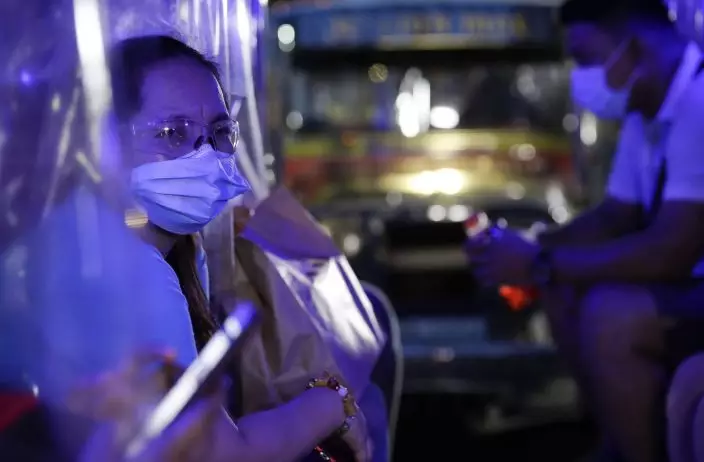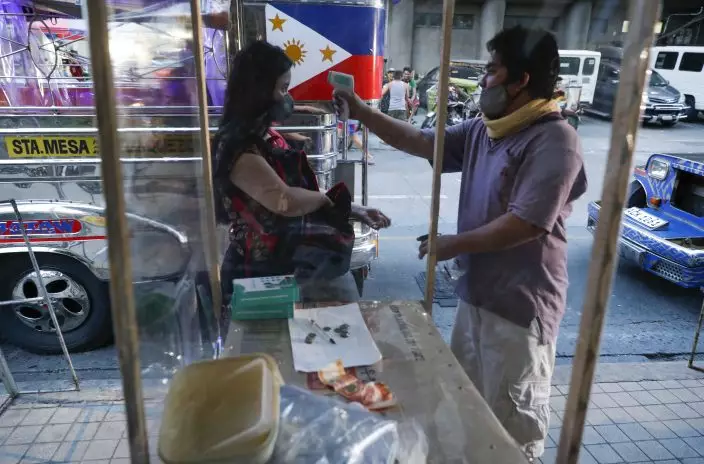SEOUL, South Korea -- South Korea has reported 63 new cases of the coronavirus, continuing a weekslong resurgence as new clusters pop up in various parts of the country.
The figures announced by the Korea Centers for Disease Control and Prevention on Saturday brought national totals to 13,030 infections, including 283 deaths.
Twenty-eight of the new cases were reported from the densely populated Seoul metropolitan area, where about half of South Korea’s 51 million people live. Infections were also reported in major cities such as Busan, Daegu, Daejeon and Gwangju, where hundreds of schools have been shut and social restrictions elevated.

People wait in line for the new coronavirus tests at a church in Gwangju, South Korea, Friday, July 3, 2020. South Korea has reported 63 newly confirmed cases of COVID-19 as health authorities scramble to mobilize public health tools to the southwestern city of Gwangju, where more than 50 people were found sickened over the past week. (Chung Hoi-sungYonhap via AP)
Twenty-seven cases were linked to international arrivals. South Korea has enforced two-week quarantines on all overseas passengers since April.
While health authorities are finding it increasingly difficult to trace contacts and predict infection routes, the Seoul government has so far resisted calls to reimposed stronger social distancing measures after easing them in mid-April, citing concerns about hurting the economy.
Follow all of AP’s pandemic coverage at http://apnews.com/VirusOutbreak and https://apnews.com/UnderstandingtheOutbreak

Passengers wait inside a traditional Jeepney bus fitted with plastic sheets to separate passengers as part of health measures to help prevent the spread of the new coronavirus in metropolitan Manila, Philippines on Friday, July 3, 2020. The government is allowing some routes for Jeepneys to be opened to help public transportation as the government slowly eases the coronavirus lockdown (AP PhotoAaron Favila)

A passenger has her temperature checked to prevent the spread of the new coronavirus as some routes for the Traditional Jeepney buses were opened to help public transportation while the government slowly eases lockdown in metropolitan Manila, Philippines on Friday, July 3, 2020. (AP PhotoAaron Favila)


